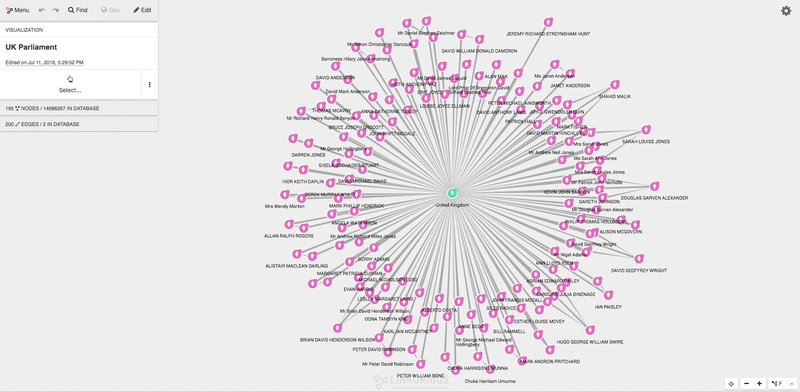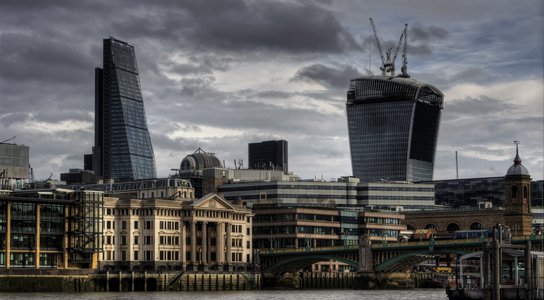Two years after the UK first set up its register of the real owners behind companies (The Register of Persons of Significant Control), we’ve just published the most comprehensive analysis of the data to date.
Working with a talented group of data scientists at DataKind UK, we combed through the data – consisting of over 4 million companies – to uncover likely mistakes, loopholes and suspicious signs for money laundering and financial crime.
Naturally, as a campaigning organisation we focus on some of the weaknesses of the register so that it can be improved and become a better tool for tackling corruption and money laundering. However, we also need to point out where it is already reaping rewards and showing some exciting results. We picked out our top three:
1. Scottish Limited Partnerships – the start of a success story
For years Scottish Limited Partnerships (SLPs) were a little known legal vehicle set up primarily for farmers in Scotland. More recently, SLPs gained notoriety for their association with corruption, organised crime and tax evasion – including as part of the Russian and Azerbaijani Laundromats. One of the reasons SLPs appeared to be so attractive to international criminals was their secretive nature You could set one up without having to declare who really controlled or and benefited from it. And then once its set up, you could use your SLP to to open a bank account or purchase property, without any connection to your name. Plus you get to enjoy the semblance of legitimacy through a UK connection.
As of 2011 the rates of incorporation for SLPs started mushrooming, culminating in an almost doubling between 2015-2016. This changed in June 2017 when, in a move that appears to have surprised a number of the real owners behind SLPs, they were brought within the scope of the UK’s beneficial ownership transparency rules - so that the real owners had to be disclosed in the register. Almost immediately their rates of incorporation plummeted to the lowest in 7 years, 80% lower in the last quarter of 2017 than at its peak at the end of 2015.
This case is hugely significant, and shows that transparency works in just the way we hoped it would: telling the criminal and corrupt that their money, and their business, isn’t welcome in the UK. While criminals may move on to other secrecy vehicles, including in tax havens, it sends an important signal that the UK is not open for dirty business and, importantly, it closes down yet another route for money laundering and other crimes.
If you’re interested in our SLPs findings we also found:
- A huge number of SLPs had a beneficial owner linked to
a post-Soviet
country (43.15% - as compared with only 0.15% of England &
Wales Companies)
- Worryingly, as the rates for SLPs dropped off, there was
an increase
in incorporation of Northern Irish and England & Wales
Limited Partnerships, which are not subject to the same transparency rules.
2. Huge demand and access
People want to see this
information - and the fact that the UK’s register is freely accessible and
available as open data means they can. After paywalls were removed in June
2015, access to UK company data grew exponentially to over 2
billion data searches a year, compared with just over
6 million access requests for paid information during 2014-2015.
Clearly, a lot of people find this information useful!
If you contrast this with a closed system, the UK’s ‘Exchange of Notes’ arrangement with its Overseas Territories and Crown Dependencies resulted in beneficial ownership information being exchanged with law enforcement a meagre 70 times since 2016.
In addition to our work scrutinising the data in the register, journalists, businesses and citizens everywhere have been able to use the data to conduct checks and find out more about companies and individuals. Even the UK’s own Secretary of State, Jeremy Hunt.

Looking ahead, we are working
with a partner in the Ukraine to analyse control of UK companies by Ukrainian
politicians – more to come on that soon.
3. An agenda for reform
Thanks to our analysis of the UK register, we have a much better understanding of the loopholes that can be used to avoid disclosing a beneficial owner and the weaknesses in the quality of the data. In short, we have a clear agenda for reform (see our recommendations here).
The most crucial point we want to make is that information submitted to the register needs to be subject to checks. At the moment it is taken at face value. Companies House, in conjunction with other relevant Government departments, needs:
- More
resources and a clear mandate to verify the data;
- To
proactively pursue non-compliance and enforce the rules by using
dissuasive sanctions;
- To
develop a capability to identify and investigate suspicious companies (as
we have started doing).
It would be wrong to assume that our criticisms mean the register is ineffective. It is only because the register is available as open data that we are even able to identify these weaknesses. We dread to think what the situation might be in some places where the system for collecting this information is closed.
It isn’t too hard to imagine though: recent leaks from the ICIJ expose the absolute chaos at the British Virgin Islands (BVI) branch of the law firm Mossack Fonseca soon after the Panama Papers broke in May 2016. No one knew who really owned almost 20,000 of their active companies - 70% of the companies they were working with.
BVI is a jurisdiction which prides itself on verifying beneficial ownership information, with rules in place since November 2015 requiring BVI registered agents to hold beneficial ownership information . However a loophole in the law means they’re not required to hold the underlying documentation, which is crucial for conducting meaningful checks and aiding investigators (see Christian Aid’s report).
To close, the UK is blazing the trail for transparency, and has a real opportunity to share its lessons internationally and set the global standard. As more countries follow suit, the perceived weaknesses of the UK register and the willingness of the UK Government to tackle them will be defining. Meanwhile, it will be our job to keep holding the Government’s feet to the fire, while we continue to celebrate the growing number success stories made possible by the register.


